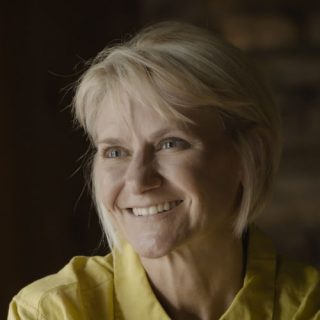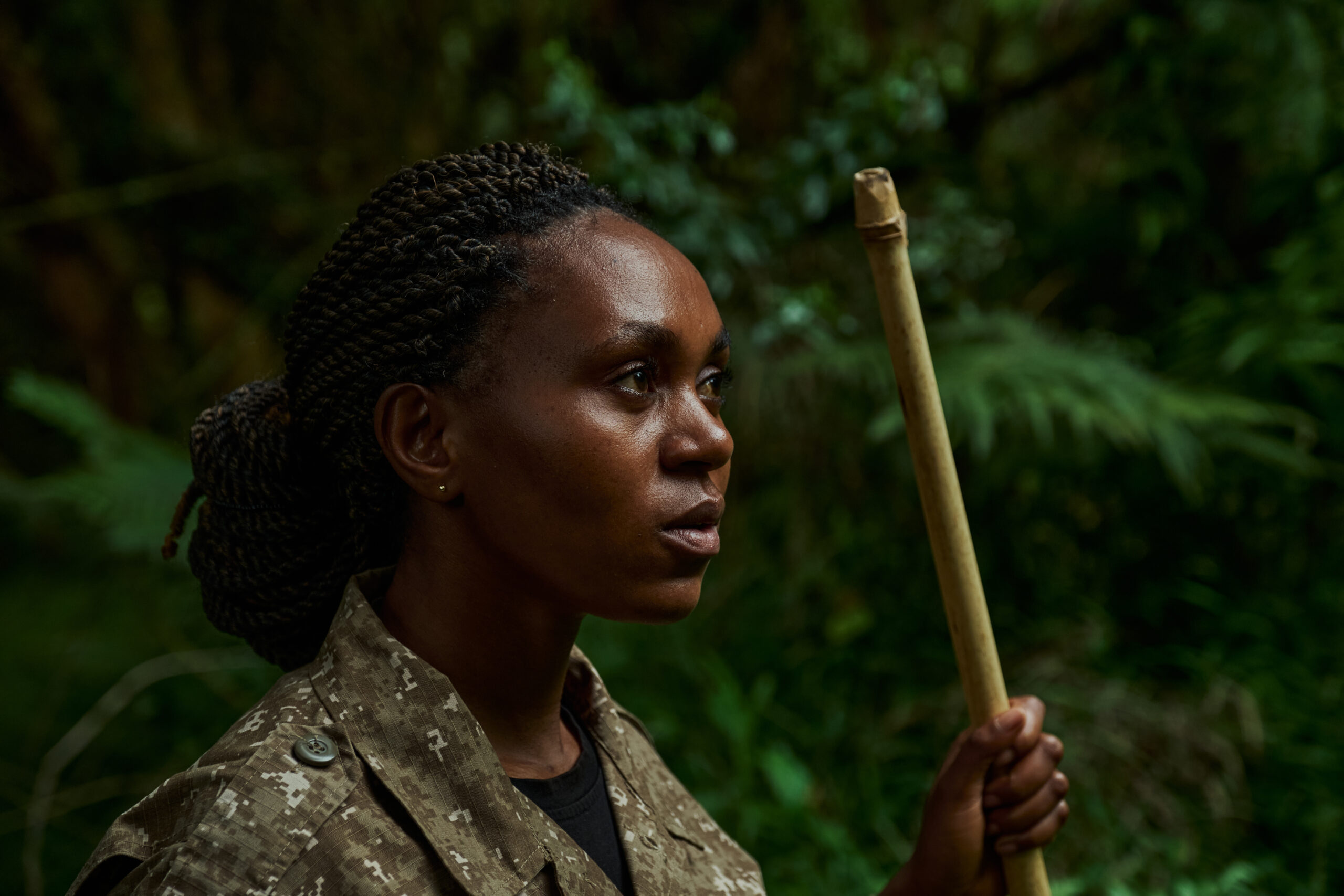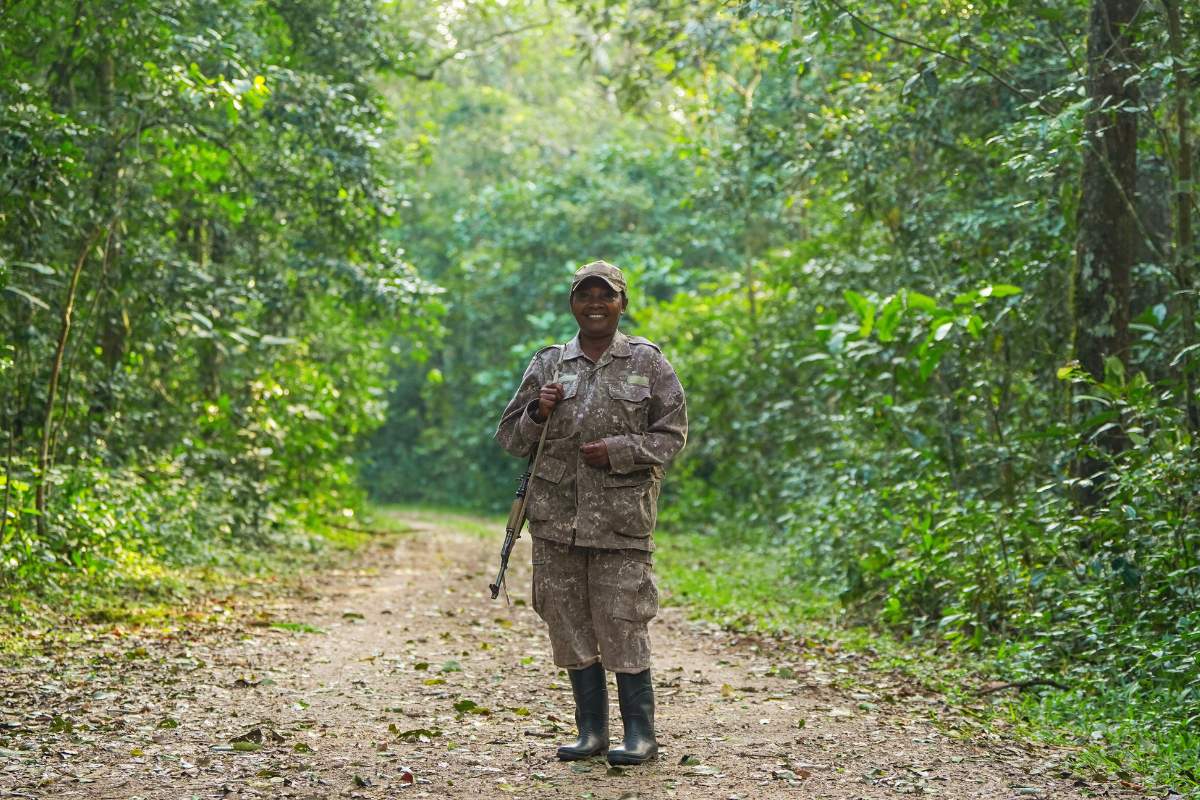When a female elephant is brutally killed for her ivory tusks, or when a herd scatters in response to human retaliation, there is a chance that a vulnerable calf could be left behind. Poaching and human-wildlife conflict are decimating elephant populations across Africa, with an estimated 50-100 elephants dying at the hands of humans each day.
This tragically high number of elephant deaths results in a high number of orphaned elephant calves who need intensive around-the-clock care if they are to survive, especially if they are still milk-dependent.
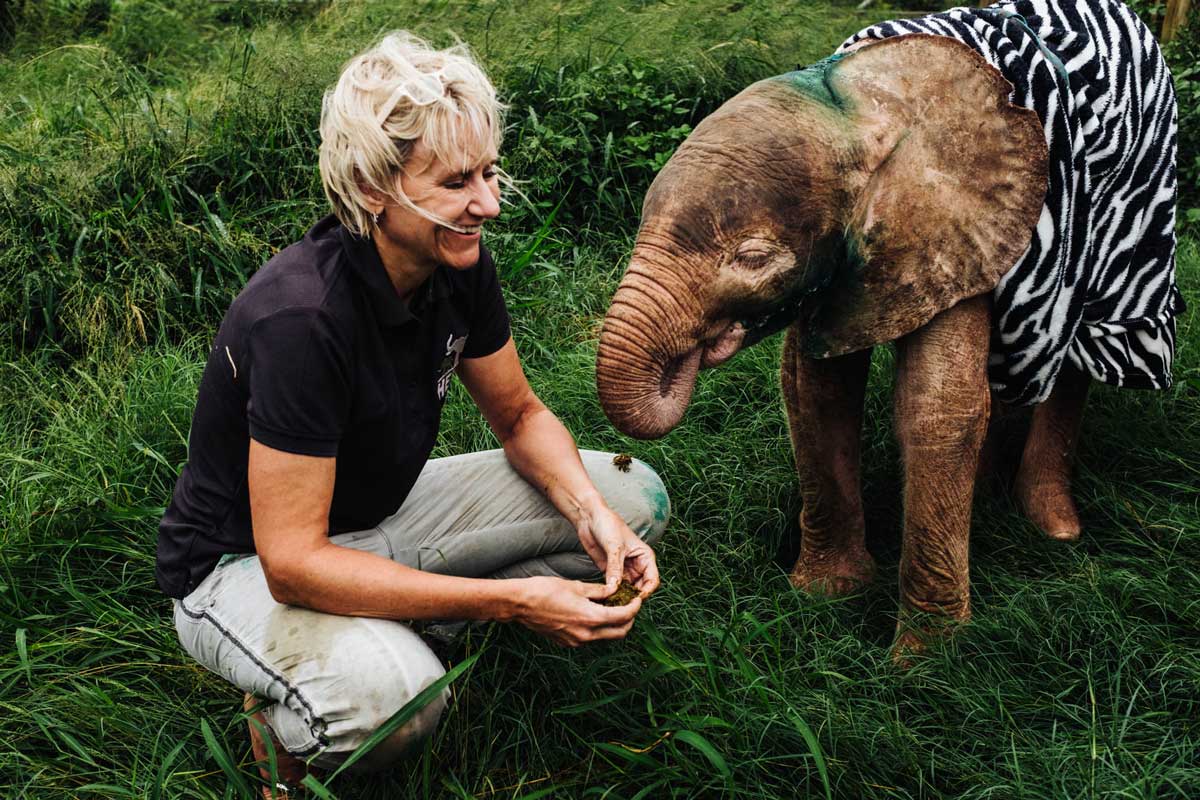
South Africa is one of the countries that has been hit by poaching and human-elephant conflict, and yet it had never had a specialised elephant orphanage until Adine Roode set up HERD Orphanage, based in the Kapama Reserve. Adine has a wealth of knowledge in the field of conservation, having spent her life surrounded by wildlife, and having been heavily involved in the rehabilitation of orphaned and injured rhinos and rescued elephants.
With the growing number of elephant orphans in South Africa, Adine used this knowledge, as well as her palpable passion, to set up South Africa’s first dedicated elephant orphanage, which rescues, rehabilitates and releases orphaned elephants back into a wild environment so that they can have a second chance at life.
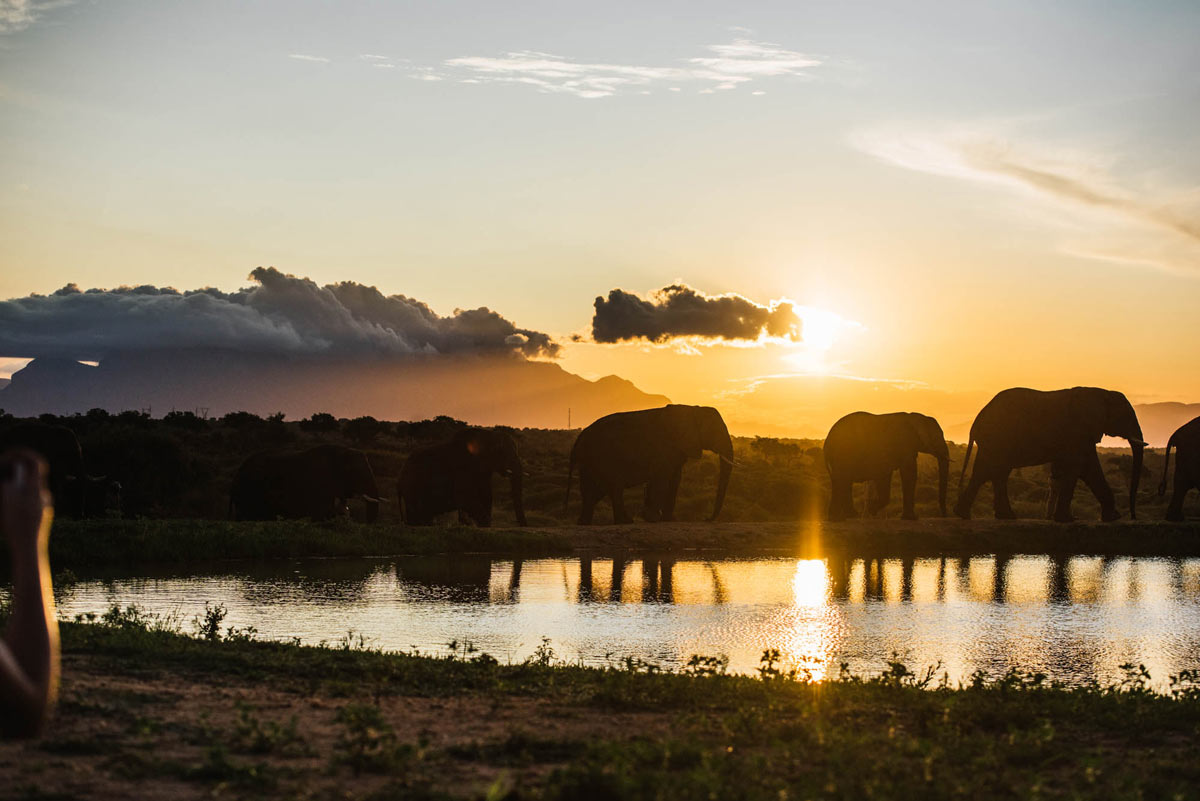
Adine’s nurturing nature, coupled with her invaluable experience, is what makes her so perfect for a job like this. Elephants are highly social animals, living in herds with complex social structures and close emotional bonds, and so when a young elephant loses its mother and natal herd, the psychological impacts are traumatic. Orphaned elephants struggle emotionally in the early stages of post-rescue, with signs of trauma including nightmares, refusing to feed, and a lack of interest in socialising, all of which are truly heart-breaking to witness.
During this stressful time, the orphaned elephant needs carers that are dedicated, who will never give up, and who will be there for them 27/4, providing the comfort and security that the orphan so desperately needs in order to overcome such trauma. Adine’s soft and caring character helps to soothe the orphan’s pain, stepping in as a replacement mother during the vital rehabilitation process. Seeing the developing bond between Adine and Khanyisa, the only orphan currently being cared for at HERD, is heart-warming and it is clear that she is helping Khanyisa to grow stronger, more confident, and comfortable with her new life.
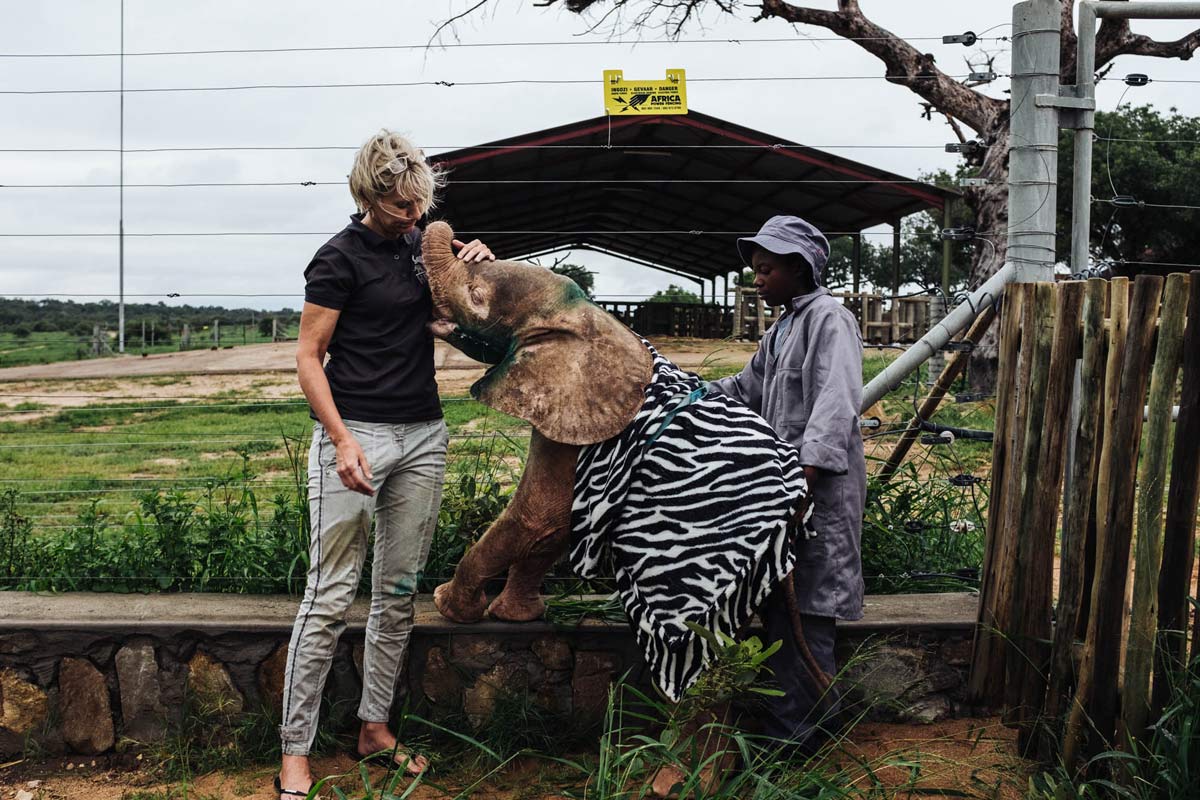
Not only do elephant calves rely on their mothers and herd members for emotional support, but also for learning important survival skills, such as navigating wild surroundings and knowing which nutrient-rich plants and trees to feed on. This is where Adine also plays a big role, as she guides Khanyisa through each day, with the support of her team, helping her to learn and become independent.
Adine manages the team at HERD, including Junior Carer, Khensani. She takes the time needed to ensure the staff are fully trained and well-fitting so that the orphaned elephants receive the highest quality of care, including expert veterinary treatment, nutritious diets, behavioural assessments, enrichment, appropriate daily exercise and emotional support.
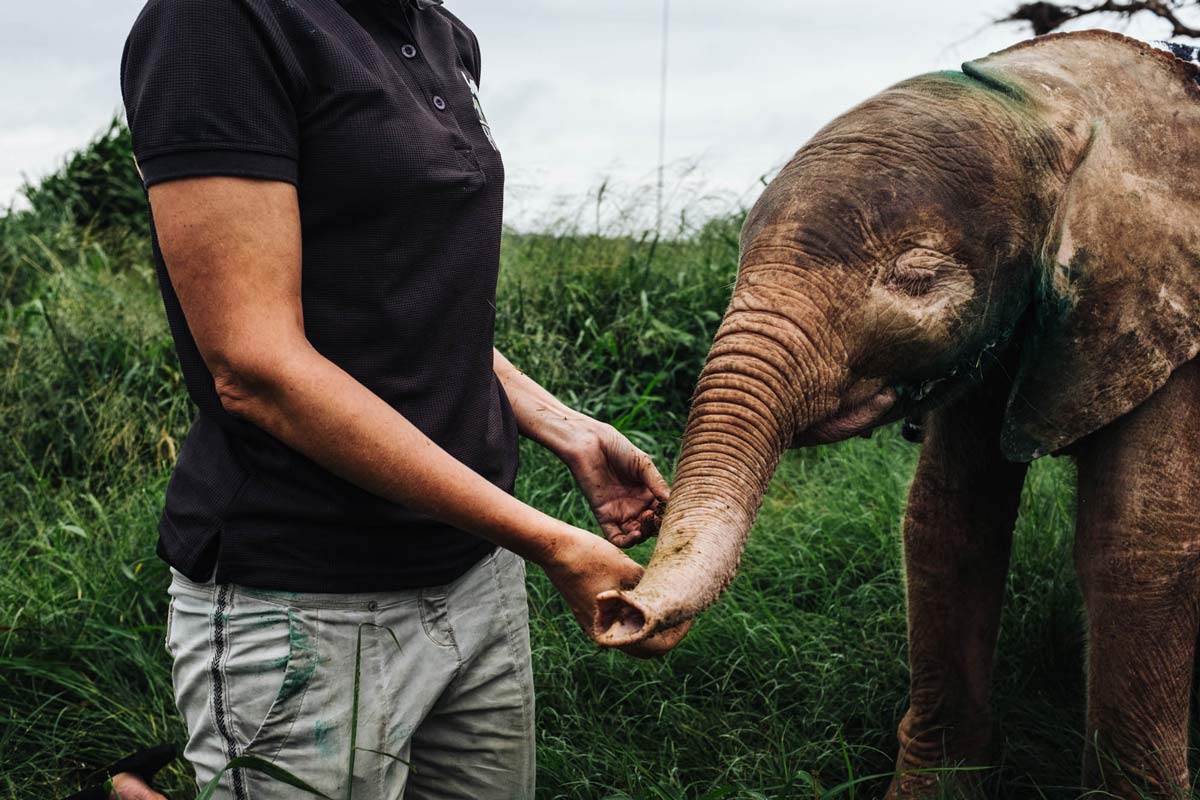
Adine is not only playing a maternal role in the orphaned elephants’ lives, but also in the lives of her team. She is a natural mother and nurturer with a huge heart and big ambitions. She wants to live in a world where elephants are free – free from harm, free to roam wilderness areas, and free to live the life they should so rightly live.
